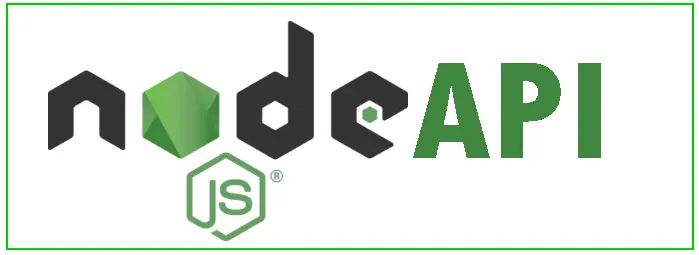Welcome to the Web3 world, where digital finance and applications are shown in a revolutionary way through the fusion of blockchain technology, cryptocurrencies, and a pioneering spirit. Are you overwhelmed by the wealth of terms in the Web3 world that you don’t understand? Are those slangs barriers for you to learn about Web3? Don’t worry! We’re here to explain the obscure terms to guide your learning. Today, we're diving into an essential concept in the world of Web3: [API Node].
An API node in the context of blockchain networks is a specialized node that provides an interface for developers and applications to interact with the blockchain. These nodes are configured to handle API requests, allowing for operations such as querying blockchain data, submitting transactions, and accessing various blockchain services.
API nodes comprise several key components and functionalities within a blockchain network:
●Data Retrieval: API nodes allow users and applications to retrieve blockchain data, such as account balances, transaction histories, block information, and smart contract states.
●Transaction Submission: These nodes facilitate the submission of transactions to the blockchain network. When a transaction is submitted through an API node, it is propagated to other nodes and eventually included in a block.
●Smart Contract Interaction: API nodes provide endpoints for interacting with smart contracts, enabling the execution of contract functions and retrieval of contract data. ●Network Information: They provide real-time network information, including node status, network health, and other relevant metrics.
1.Data Access: API nodes allow developers and users to access and query blockchain data efficiently.
2.Transaction Processing: They facilitate the submission and processing of transactions within the blockchain network.
3.Smart Contract Execution: API nodes provide the necessary interfaces for interacting with and executing smart contracts.
4.Real-Time Updates: They offer real-time updates and information on the network’s status and activities.
Description: API nodes are crucial for developers as they provide the necessary interfaces to build, test, and deploy decentralized applications (dApps) without running a full node. Examples: Using API nodes from providers like Infura or Alchemy to connect to the Ethereum network. Advantages: Simplifies development processes and reduces the need for extensive infrastructure.
Description: API nodes enable efficient retrieval of blockchain data, supporting various applications and services.
Examples: Querying account balances, transaction histories, and smart contract states via API endpoints.
Advantages: Enhances the performance and responsiveness of blockchain-based applications.
Description: API nodes enable end-users to interact with the blockchain through applications, wallets, and other tools that rely on API endpoints for their functionality.
Examples: Wallets like MetaMask using API nodes to display account balances and transaction histories.
Advantages: Provides a seamless and user-friendly experience for interacting with blockchain networks.
Importance in Web3 Ecosystem
API nodes are essential to the Web3 ecosystem as they facilitate seamless interaction with blockchain networks. By providing robust and efficient interfaces for data access, transaction processing, and smart contract execution, API nodes enable the development and deployment of a wide range of decentralized applications.
User Experience and Innovations
API nodes enhance user experience by ensuring quick and reliable access to blockchain data and services. Innovations such as dynamic API scaling, enhanced security measures, and optimized data retrieval algorithms continue to improve the functionality and performance of API nodes.
The Telos blockchain integrates API nodes to enhance its network’s accessibility and performance. Telos API nodes provide endpoints for querying blockchain data, submitting transactions, and interacting with smart contracts. These nodes are crucial for developers building on the Telos platform, offering a robust and efficient interface for blockchain operations. The integration of API nodes in Telos demonstrates their importance in maintaining a scalable, secure, and user-friendly blockchain network.
API nodes are fundamental components of blockchain networks, providing essential services for data access, transaction processing, and smart contract execution. By understanding and leveraging API nodes, developers and stakeholders can enhance the functionality and reliability of decentralized applications and services, driving innovation in the Web3 space.
If you would like to learn more about terms like API Node, let’s explore more in our HackQuest Web3 Glossary!

